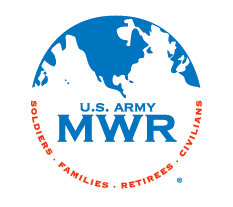
Exceptional Family Member Program
Exceptional Families. Exceptional Service.
Exceptional Family Member Program
The Exceptional Family Member Program (EFMP) is a mandatory enrollment program that works with other military and civilian agencies to provide comprehensive and coordinated community support, housing, educational, medical, and personnel services to Families with special needs. Soldiers on active duty enroll in the program when they have a Family member with a physical, emotional, developmental, or intellectual disorder requiring specialized services so their needs can be considered in the military personnel assignment process.
EFMP takes an all-inclusive approach to coordinating military and civilian community, educational, medical, housing, and personnel services to help Soldiers and their Families with special needs. Enrollment in EFMP includes a wide array of benefits, these are detailed in the EFMP Benefits Fact Sheet.
EFMP enrollment does not adversely affect promotions, schools, or assignments. EFMP information is not made available to selection boards.
Soldiers with Exceptional Family Members are required to register for EFMP and keep enrollment information current. That way, Family needs will be considered during the OCONUS assignments process. If you’re eligible for EFMP services, Family members must be screened and enrolled when they accompany authorized Soldiers on OCONUS assignments. Screenings include a medical records review for all Family members and developmental screening for all children 72 months and younger. (Special education needs are considered only in assignments outside the United States. Assignments within the US and its territories are not based on the educational needs of children.)
For more information about EFMP and helpful articles about the program, look at the Enterprise EFMP site.
After that, contact the installation EFMP manager at your local Army Community Service (ACS) office. Find the EFMP service near you.
To learn more about medical enrollment, see the Program Overview.
EFMP Resources
Here are some helpful resources for EFMP Families.
(Government Links)
- Systems Navigators. Systems navigators are ACS EFMP staff members available on most Army installations. They assist EFMP Families with navigating through the available systems of care.
- EFMP Newsletter. The Exceptional Advocate is the DoD’s EFMP newsletter, which includes helpful information and resources.
- Military OneSouce. Military OneSource’s EFMP & Me tool allows Families to explore the details of EFMP benefits and processes.
- Respite Care Support. The Army’s Respite Care Support services provide a temporary rest period for Family members responsible for regular care of persons with disabilities. Care may be provided in the EFM respite care user’s home.
- DirectSTEP. DirectSTEP® eCourses are available for free to Soldiers and Family Members, Army EFMP staff, and Special Education staff associated with teaching military children. DirectSTEP® eCourses teach staff, parents, and educators how to handle critical education issues to obtain positive outcomes.
(Non-Government Links, No Endorsement Implied)
- Center for Parent Information and Resources (CPIR). CPIR serves as a central resource of information and products to the community of Parent Training Information (PTI) Centers and Community Parent Resource Centers, so they can focus their efforts on serving Families of children with disabilities.
- American Camp Association (ACA). The ACA is a community of camp professionals who join together to share their knowledge and experience and ensure the quality of camp programs, including those for Exceptional Family Members.
EFMP Registration
The Exceptional Family Member Program (EFMP) was created in the early 1980's to support Military Families with a special needs Family member. The program has grown tremendously over the years and is now a comprehensive, coordinated multi-agency program helping meet the needs of the Exceptional Family Member (EFM). The Army Medical Department (AMEDD) EFMP web address was launched earlier this year to establish a standard registration process for Military Families and guidance for maneuvering through the enrollment procedures. Families have access to concise information about MEDCOM EFMP support. Click on the links below to access the EFMP Quick Reference Guide and AMEDD Support website for access to Enrollment, Screening, Medical Care in Europe, and any necessary Forms related to the Exceptional Family Member Program.
Click here to enroll for EFMP on the official AMEDD Support website.
EFMP Quick Reference Guide.pdf
Respite Care Program
The Respite Care Program is a component of EFMP that provides a temporary rest period for Family members responsible for regular care of persons with disabilities. Care may be provided in the EFMP respite care user’s home and Child, Youth and School Services facilities.
Respite care is important because it decreases Family stress, increases Family stability, and reduces costly out-of-home placements, thereby contributing to Soldier readiness.
Respite care services can be accessed through the central contract by contacting your local ACS EFMP office.
System Navigators
Systems Navigators are Army Community Service EFMP staff members located on most Army installations. They are trained and knowledgeable about the systems of care used by Families with special needs. The primary role of a Systems Navigator is to navigate Families through the available systems of care.
- Identify EFM and Family strengths and needs.
- Help identify and prioritize EFM and Family goals.
- Develop a Family Service Plan to reach goals.
- Make referrals to required services.
- Provide information about disabilities or medical conditions of concern.
- Identify support groups and social activities.
- Strengthen Family's ability to advocate for EFM.
EFMP: Frequently Asked Questions
A1: The EFMP is a mandatory enrollment program that works with other military and civilian agencies to provide comprehensive and coordinated community support, housing, educational, medical, and personnel services to Families with special needs.
A2: An EFM is a Family member (child or adult) with any physical, emotional, developmental, or intellectual disorder that requires special treatment, therapy, education, training, or counseling.
A3:
a. The following Soldiers with EFMs (children and adults) will enroll in the EFMP: - 1) Active Army. - 2) U.S. Army Reserve (USAR) Soldiers in the USAR Active Guard Reserve (AGR) Program. Mobilized and deployed Soldiers are not eligible for enrollment in EFMP. - 3) Army National Guard AGR personnel serving under authority of Title 10, United States Code and Title 32, United States Code. b. Department of the Army civilian employees do not enroll in the program. However, they must identify dependent children with special education and medically related service needs and Family members with medical needs each time they process for an assignment to a location outside the United States where Family member travel is authorized at Government expense.
a. The following Soldiers with EFMs (children and adults) will enroll in the EFMP: - 1) Active Army. - 2) U.S. Army Reserve (USAR) Soldiers in the USAR Active Guard Reserve (AGR) Program. Mobilized and deployed Soldiers are not eligible for enrollment in EFMP. - 3) Army National Guard AGR personnel serving under authority of Title 10, United States Code and Title 32, United States Code. b. Department of the Army civilian employees do not enroll in the program. However, they must identify dependent children with special education and medically related service needs and Family members with medical needs each time they process for an assignment to a location outside the United States where Family member travel is authorized at Government expense.
A4: The Soldier contacts the nearest Army medical treatment facility EFMP point of contact to begin the assessment process and obtain the enrollment forms. Once the forms are completed, they are forwarded to the appropriate regional medical command for coding. The regional medical command enrolls eligible Active Army Soldiers in EFMP. They notify Army National Guard and Reserve personnel agencies of eligible AGR Soldiers who then enroll them in the program.
A5: Enrollment in EFMP does not adversely affect selection for promotion, schools, or assignment. Information concerning enrollment in EFMP or any of the data used in the program is not made available to selection boards.
A6: Enrollment allows assignment managers at Army personnel agencies to consider the documented medical and special education needs of EFMs in the assignment process. When possible, Soldiers are assigned to an area where the medical and special education needs of their EFM can be met. This will depend on a valid personnel requirement for the Soldier’s grade, specialty and eligibility for the tour. All Soldiers are still eligible for worldwide assignments.
A7: Special education needs are only considered in assignments outside the United States. Assignments within our 50 States and Trust Territories are not based on the educational needs of children. Every local school system must obey public laws regarding the provision of special education.
A8: Army Community Services include information and referral, advocacy, support groups, respite care and relocation assistance.
Last modified: January 31, 2023 - 8:34 pm UTC



